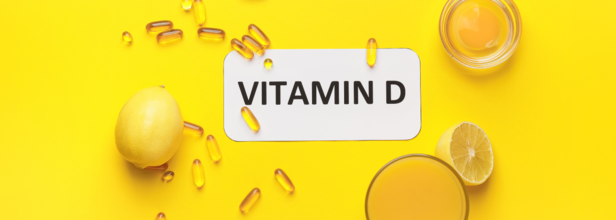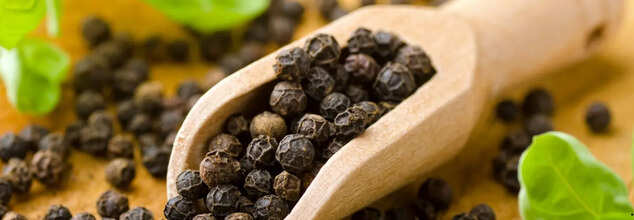
Credits: Canva
Mexico Bans Junk Food In Schools To Combat Child Obesity Problem
In Mexico, a government-sponsored junk ban in schools have taken place. It has been in effect from Saturday. The officials have also confirmed that this step is a way to tackle the problem of obesity and diabetes epidemic that the country is facing.
The health guidelines had been published last fall which took a direct shot in salty and sweet processed products. These products have become a staple for generations of Mexican school children. These include sugary fruit drinks, packaged chips, artificial pork rinds, and soy encased, chilli-flavored peanuts.
Mexico's Education Ministry posted on X, announcing that the ban had become a law. The tweet read: "Farewell, junk food!" The aim of this step is also to encourage parents to support the government's crusade by cooking healthy meals for their kids.
Mario Delgado, who is the public health secretary said, "one of the core principles of the new Mexican school system is healthy living. There is a high level of acceptance of this policy among parents."
Obesity In Mexico
As per the Global Obesity Observatory, there has been a rise in child obesity among the age bracket of 12 to 19 years. The report tracked the children between 2012 to 2021. As per a study published in Frontiers in Public Health, titled Childhood obesity in Mexico: Influencing factors and prevention strategies, overweight and obesity in school-age children, in Mexico is rapidly increasing public health problem within recent years. The study also found that obesity rates have a relation with food consumption, as there is an increase in consumption of high energy density food and drinks, whereas lower consumption of fibers.
Have Governments Gotten Involved In Foods Before?
UK has launched a new Food Strategy Advisory Board (FSAB) to improve food security, public health, and sustainability. It has brought government ministers, industry leaders and experts from the food sector together to develop policies to ensure a more resilient and healthier food system.
The FSAB is chaired by Daniel Zeichner MP, who is the minister of state for food security and rural affairs. It also includes other key figures like Professor Chris Whitty from the Department of Health and Social Care, Simon Roberts from Sainsbury’s, Anna Taylor from the Food Foundation, and Tim Smith from Cranswick. These representatives are leading food manufacturers, retailers, and research institutions, which will eventually contribute their expertise to shape a comprehensive food strategy. The aim is to balance nutrition, sustainability, and industry needs.
In the US too, the government through agencies like the US Department of Agriculture (USDA) and Centers for Disease Control and Prevention (CDC) promotes healthy eating plans. There are also resources like the Dietary Guidelines for Americans, 2020-2025 and the MyPlate.gov, which emphasizes on a balanced diet rich in fruits, vegetables, whole grains, and lean protein while limited saturated and trans fats, sodium, and added sugars.
The Dietary Guidelines for Americans is also updated every 5 years, which provides evidence-based guidance on healthy eating patterns, including Healthy US-style Eating Pattern, and Healthy Mediterranean-style Eating Pattern.

Credits: Canva
What Role Does Vitamin D Play In Your Gut Health?
Vitamin D is known for its role for maintaining strong bones and teeth. However, its benefits can be extended beyond bone health and skeletal health. It is an essential nutrient that is involved in several bodily functions, including immune support, blood sugar regulation, and gut health.
A research conducted through the MetA-Bone Trial by the Washington Post, focused on how a dietary fiber supplement can impact bone mass in children and adolescents. It is in this process that the team uncovered a surprising connection between vitamin D and gut health.
How Was The Research Conducted?
The research examined 213 children and adolescents from South Florida, who were primarily Hispanic and Blacks. Their vitamin D levels were measured before they started taking the supplement. 68% of them had suboptimal vitamin D levels.
South Florida has abundant of sunshine around the year, the finding was unexpected, in fact, concerning. While vitamin D is present in some foods, most of it can be consumed through sunlight. In fact, most Americans rely on sunlight for their vitamin D intake. This deficiency is alarming for children and adolescents who are approaching their puberty, which is a period of rapid physiological change and includes bone mass development.
The Many Roles of Vitamin D
Vitamin D plays a crucial role in different bodily functions. Vitamin D receptors are present in several organs which serve as docking stations for the vitamin and allows it to exert its effects on the skin, intestines, bones, parathyroid gland, immune system and pancreas.
One of vitamin D’s primary functions is regulating calcium levels in the body. This regulation is essential not only for bone formation and maintenance but also for the proper functioning of the nervous system. Vitamin D also contributes to cell differentiation, the process by which cells become specialized to perform specific tasks. Additionally, it plays a role in insulin secretion, blood pressure regulation, muscle repair, immune function, and nutrient absorption.
How Can Vitamin D Support Your Gut Health?
Your gut system is home to many vitamin D receptors and so it can contribute to better calcium absorption and a stronger intestinal barrier.
It is this barrier that allows the intestines to absorb nutrients while keeping harmful bacteria and toxins out. It consists of intestinal cells re connected by proteins which are called the tight junctions. Vitamin D receptors also help produce these tight junctions and ensure the integrity of the gut lining.
Research indicates that a deficiency in vitamin D can weaken these receptors, reducing the strength of the intestinal barrier. A compromised barrier allows substances from the gut to enter the bloodstream, leading to inflammation. This breakdown has been associated with various health conditions, including liver disease, Type 1 diabetes, obesity, and gastrointestinal disorders such as celiac disease, inflammatory bowel disease, and colon cancer.
As part of our study, we also assessed the intestinal barrier strength of our participants and compared it with their vitamin D levels. Our findings revealed that children with suboptimal vitamin D levels had a higher risk of compromised gut health. Even among otherwise healthy children, low vitamin D levels could potentially increase the risk of chronic diseases at an early age.

Image Credits: Canva
Can Homeopathy Really Detox Your Body? Expert Weigh In
Detoxification is the body's natural cleansing process of eliminating dangerous toxins that have built up from environmental toxins, poor diets, and stress. It cleanses the blood, liver, and other organs involved in the process of waste elimination. While mainstream detoxing processes usually consist of rigid diets, fasting, or colon cleanses, homeopathy offers a softer and holistic means of stimulating the body's own cleansing processes.
The new lifestyle has contributed immensely to changed eating patterns, resulting in increased chronic conditions of obesity, diabetes, and heart diseases. Toxins penetrate the body in the form of processed foods, alcohol, pollution, and stress. They become part of the blood and lymphatic system, slowly accumulating in essential organs such as the liver, kidneys, and intestines. These toxins, if not efficiently eliminated, can result in fatigue, gastrointestinal discomfort, skin ailments, and compromised immunity.
The liver is the primary organ for detoxification. Through the process of metabolism, the Phase 1 detoxification of the liver (also referred to as the P450 enzyme system) creates free radicals, which can cause tissue damage if there are not adequate antioxidants within the body. This is why dietary or supplement replenishment of antioxidants is important in order to detoxify efficiently.
Can Homeopathy Naturally Detox?
As opposed to traditional detox routines that are hard on the body, homeopathy acts on the cellular level to complement the body's inherent capacity for detoxification. According to Dr. Manju Singh, Homeopathy expert, homeopathy does not cleanse but instead 'drains' toxins, and that it activates the body's defense mechanisms, allowing toxins to be removed effectively without an interruption in overall health.
Homeopathic Remedies for Detoxification
Nux Vomica: Perfect for detoxifying after binge drinking, caffeine, or fast foods. Alleviates bloating, nausea, and stomach discomfort.
Lycopodium: Facilitates liver function and eliminates digestive problems such as gas, bloating, and acidity.
Sulphur: Famous for purifying the skin, it clears acne, eczema, and rashes due to toxin accumulation.
Berberis Vulgaris: Maintains kidney health by facilitating the elimination of toxins through urine, keeping kidney-related diseases at bay.
Chelidonium Majus: Supports liver functioning, digestion, and fat digestion without any effort.
Why Lifestyle Plays an Important Role in Detoxification?
Though homeopathy is a strong supporter of detoxification, healthy lifestyle also plays a similar role. The inclusion of the following habits can make the body most effective in natural toxin removal:
1. Hydration
Adequate intake of water is essential to flush out toxins in the form of urine and sweat. Herbal teas and fresh juices can also aid in hydration and detoxification.
2. Nutrient-Dense Diet
A well-balanced diet that includes plenty of fruits, vegetables, whole grains, and fiber feeds the body while encouraging toxin elimination. Cutting down on processed foods, alcohol, and excessive caffeine consumption further aids detoxification.
3. Consistent Physical Exercise
Exercise increases blood circulation, strengthens digestion, and activates the lymphatic system, which helps remove toxins through sweat and breath.
4. Stress Control
Ongoing stress may lead to increased toxin accumulation in the body. Stress levels can be controlled through deep breathing techniques, meditation, and yoga, which further benefit overall health.
5. Reducing Chemical Exposure
Restricting exposure to environmental toxins, including air pollution, artificial cleaning agents, and pesticides, reduces the toxin load on the body.
Homeopathy may provide a holistic and natural means of detoxification, removing toxins from the body without harm while restoring equilibrium. A visit to a qualified homeopathic practitioner guarantees a personalized detox program suited to individual needs, making the process safe, effective, and sustainable.
Dr. Manju Singh, B.H.M.S., Homeopathy Consultant and senior homeopathic medical officer at SBL Global, India

Credit: Canva
How To Use Black Pepper For Weight Loss
Spices are the heart of Indian cuisine, adding depth and distinct flavors to dishes. Besides that, they are also hold strong medicinal value. One such widely used spice is black pepper, also known as Kali mirch. Its bold aroma and sharp taste can instantly elevate any dish, making it an essential ingredient in Indian cooking. But beyond enhancing flavor, this common kitchen staple is also a natural fat burner.
How Does Balck Pepper Aid Weight Loss?
Black pepper contains piperine, a bioactive compound known for boosting metabolism and preventing fat accumulation in the body. Additionally, it enhances the concentration of good cholesterol, contributing to better heart health.This spice is classified as a thermogenic food, meaning it helps accelerate metabolic processes, allowing the body to burn calories more efficiently. Furthermore, studies suggest that consuming spicy foods can increase satiety, making you feel full even after consuming smaller portions—an important factor in weight management.
Ways To Use Black Pepper For Weight Loss
Several studies highlight the benefits of incorporating black pepper into the daily diet for effective weight loss. While this spice is generally safe for consumption, moderation is key. Experts recommend limiting intake to 1-2 teaspoons per day, as excessive consumption may lead to digestive issues.Here are some easy and effective ways to include black pepper in your diet:
1. Black Pepper Tea
For those who love tea, adding black pepper can transform it into a **weight-loss-friendly beverage**.
How to prepare
- Boil one cup of water in a pan.
- Add one inch of crushed ginger and let it simmer for five minutes.
- Strain into a cup and steep a green tea bag in it.
- Add half a teaspoon of black pepper, stir well, and drink.
2. Chewing Raw Black Pepper
If you can tolerate its strong taste, chewing 2-3 black peppercorns on an empty stomach every morning can be beneficial.
3. Black Pepper and Honey Drink
A simple detox drink, this combination can support digestion and metabolism.
How to prepare
- Boil one cup of water and let it cool slightly.
- Stir in one teaspoon of honey and half a teaspoon of freshly ground black pepper.
- Drink it warm for best results.
4. Black Pepper Oil
Black pepper oil, when consumed in small amounts, may aid in weight loss.
How to use:
- Purchase 100% pure black pepper oil from a reliable pharmacy.
- Add one drop to a glass of water, mix well, and drink before breakfast.
5. Black Pepper in Juices
Enhance the nutritional value of fruit and vegetable juices by adding black pepper. Simply mix half a teaspoon into your juice before consumption.
Best Time to Consume Black Pepper
For maximum benefits, black pepper should be consumed **on an empty stomach**, preferably before breakfast. This helps stimulate digestion and optimize metabolic activity throughout the day.
Are There Any Side Effects Of Using Black Pepper?
While black pepper is a powerhouse of health benefits, excessive intake can lead to:
- Gastric issues and stomach upset
- Irritation of the intestinal lining
- Increased risk of miscarriage in pregnant women (should be avoided during pregnancy)
© 2024 Bennett, Coleman & Company Limited

